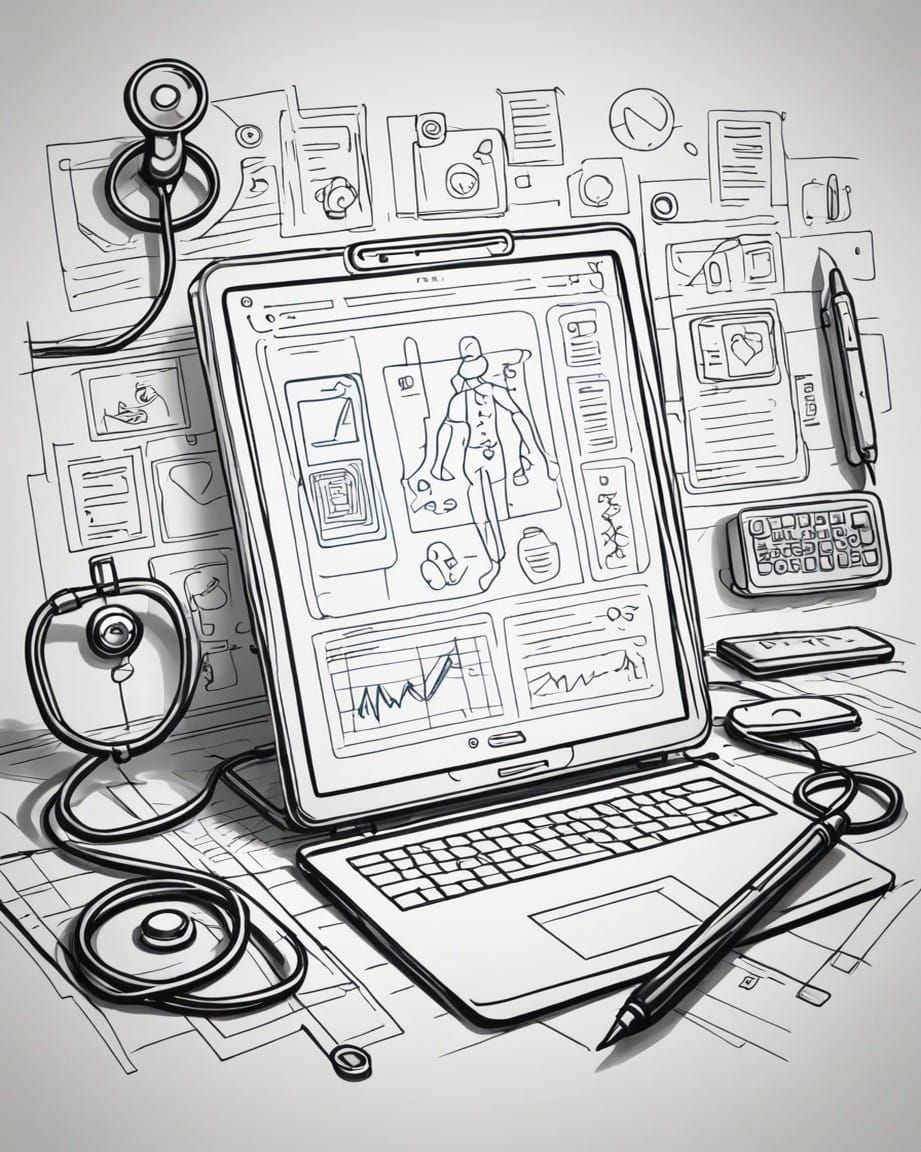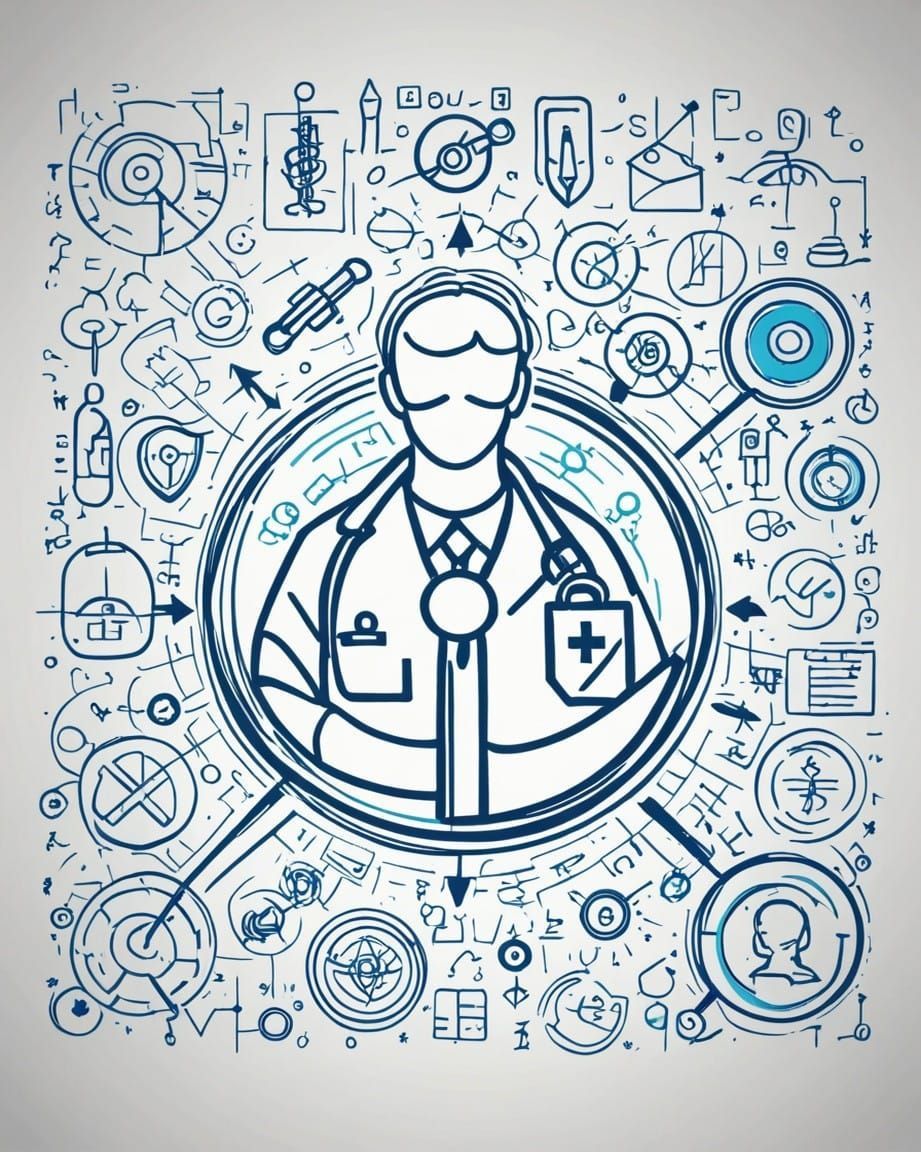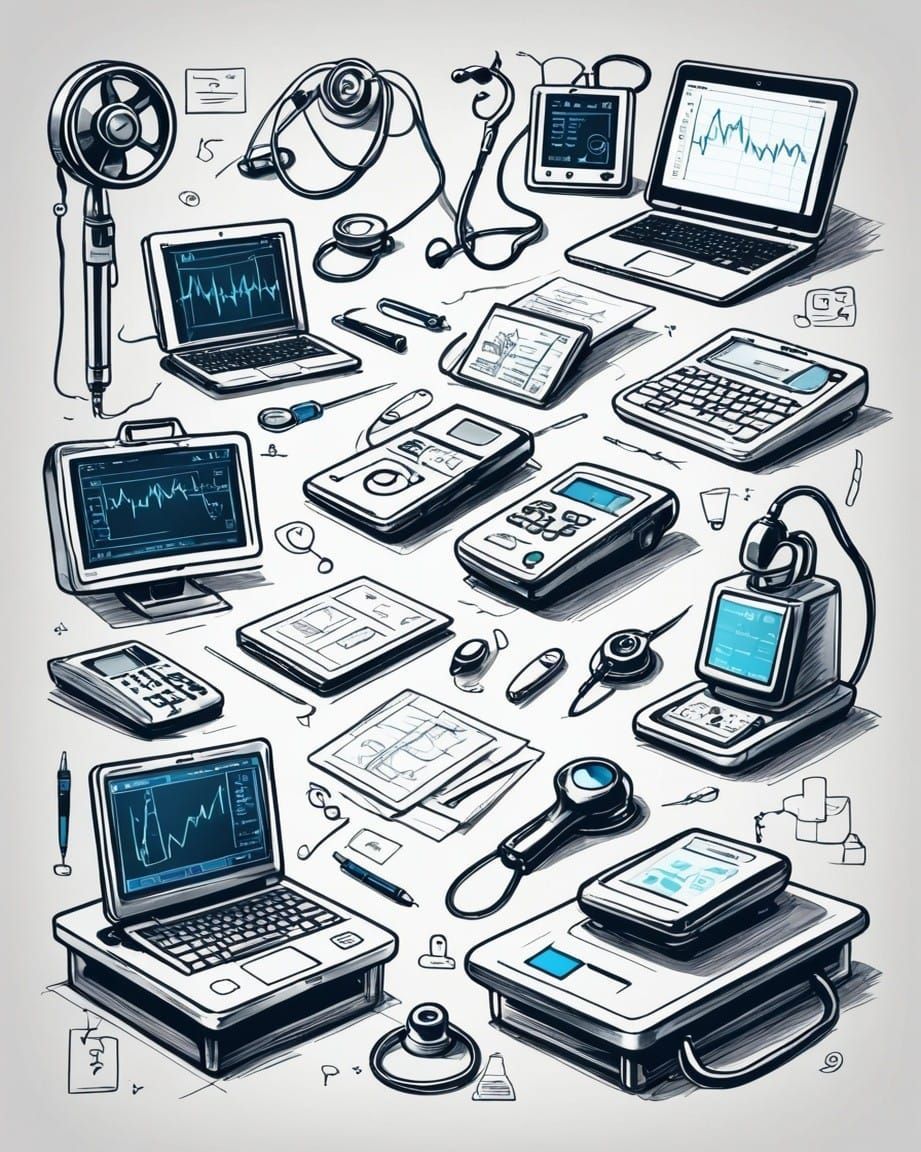Recent Articles

Healthcare technology commercialization plays a pivotal role in bridging the gap between innovative medical solutions and their practical implementation in healthcare settings. This process is essential for transforming groundbreaking ideas into tangible products and services that can improve patient care, streamline healthcare delivery, and ultimately save lives. Understanding the Commercialization Process The journey from concept to market in healthcare technology is complex and multifaceted. It involves a series of critical steps, including product development, regulatory compliance, intellectual property protection, and market research. Each stage requires careful planning and execution to ensure that the final product not only meets regulatory standards but also addresses real-world healthcare needs. Market Research: The Foundation of Successful Commercialization At the heart of successful healthcare technology commercialization lies thorough market research. This crucial step involves identifying target markets, understanding customer needs, analyzing competition, and assessing market readiness. By conducting comprehensive market research, companies can tailor their products to meet specific healthcare demands and position themselves effectively in the competitive landscape. Regulatory Compliance: Navigating the Complex Landscape One of the most challenging aspects of healthcare technology commercialization is navigating the regulatory landscape. In the United States, the Food and Drug Administration (FDA) plays a central role in overseeing the approval process for new medical technologies. Companies must familiarize themselves with FDA regulations, conduct necessary clinical trials, and ensure their quality management systems align with current good manufacturing practices. Intellectual Property Protection: Safeguarding Innovation Protecting intellectual property (IP) is crucial for maintaining a competitive edge in the healthcare technology market. This involves obtaining patents, trademarks, or copyrights for specific products or aspects of a product. Companies must also consider how to protect trade secrets and implement necessary confidentiality agreements, especially when collaborating with partners or conducting international business. Key Opinion Leader Engagement: Building Credibility Engaging with Key Opinion Leaders (KOLs) early in the commercialization process can provide valuable insights and support for clinical studies. These influential experts can help generate awareness and adoption of new healthcare technologies, lending credibility to innovative solutions and facilitating their integration into clinical practice. Pricing Strategies: Balancing Profitability and Accessibility Developing effective pricing strategies for healthcare technologies is complex. Companies must balance the need for profitability with ensuring product accessibility. This involves considering factors such as production costs, market dynamics, competition, and reimbursement policies. Striking the right balance is crucial for both commercial success and widespread adoption of beneficial healthcare solutions. Marketing and Promotion: Raising Awareness Effectively marketing healthcare technologies requires a comprehensive approach that includes digital marketing, content creation, and targeted advertising. However, it's crucial to adhere to regulatory guidelines on advertising, as the FDA has specific rules for different types of healthcare product promotions. Sales and Distribution: Reaching the Right Audience Establishing an efficient sales and distribution network is vital for ensuring product availability and market penetration. Companies must carefully consider how to best reach their target audience, whether through distributors, wholesalers, or specialty pharmacies. Understanding the purchasing patterns of customer segments is critical for developing effective sales and distribution strategies. Post-Market Surveillance: Ensuring Ongoing Safety and Efficacy Post-market surveillance is a critical component of healthcare technology commercialization. This ongoing process evaluates a product's performance, safety, and efficacy after it has entered the market. Effective post-market surveillance not only helps identify and address any unforeseen issues but also provides valuable insights for continuous product improvement and innovation. Continued Innovation: Staying Ahead in a Dynamic Market The healthcare technology landscape is constantly evolving, driven by scientific discoveries and changing market needs. To remain competitive, companies must invest in ongoing research and development. This commitment to innovation ensures that products continue to meet evolving healthcare needs and maintain their relevance in a rapidly changing market. Collaboration and Partnerships: Leveraging Strengths Successful healthcare technology commercialization often involves strategic collaborations and partnerships. By working with other organizations, companies can leverage complementary strengths, access new markets, and accelerate the development and adoption of innovative healthcare solutions. Healthcare technology commercialization is a complex but essential process that brings life-changing innovations to market. By carefully navigating regulatory requirements, protecting intellectual property, engaging with key stakeholders, and maintaining a focus on continuous innovation, companies can successfully bring new healthcare technologies to those who need them most. As we continue to face global health challenges, the effective commercialization of healthcare technologies will play an increasingly vital role in advancing medical care and improving patient outcomes worldwide.

Artificial Intelligence (AI) is revolutionizing the healthcare industry, offering unprecedented opportunities to enhance patient care, streamline operations, and advance medical research. As we delve into the multifaceted role of AI in healthcare, it becomes evident that this technology is not just an addition but a fundamental shift in how we approach health and wellness. Enhancing Diagnostic Accuracy One of the most significant contributions of AI in healthcare is its ability to improve diagnostic accuracy. Machine learning algorithms, trained on vast datasets of medical images and patient records, can detect patterns and anomalies that might elude even experienced healthcare professionals. This capability is particularly valuable in fields like radiology, where AI-assisted image analysis can identify early signs of diseases such as cancer, potentially saving lives through early detection and intervention. Personalizing Treatment Plans AI is at the forefront of precision medicine, enabling healthcare providers to tailor treatment plans to individual patients. By analyzing a patient's genetic makeup, lifestyle factors, and medical history, AI algorithms can predict which treatments are likely to be most effective, minimizing trial and error in patient care. This personalized approach not only improves patient outcomes but also reduces the likelihood of adverse reactions to medications. Streamlining Administrative Tasks In healthcare administration, AI is proving to be a game-changer. Robotic Process Automation (RPA) and other AI-driven tools are automating routine tasks such as appointment scheduling, billing, and claim processing. This automation reduces administrative burden, minimizes errors, improves efficiency, and allows healthcare professionals to focus more on patient care rather than paperwork. Advancing Drug Discovery and Development The pharmaceutical industry is leveraging AI to accelerate drug discovery and development processes. Machine learning algorithms can analyze vast chemical libraries, predict how different compounds will interact with biological targets, and identify potential drug candidates much faster than traditional methods. This expedited process has the potential to bring life-saving medications to market more quickly and at lower costs. Enhancing Patient Engagement and Care Management AI-powered chatbots and virtual health assistants are transforming patient engagement and care management. These tools provide 24/7 support, answering patient queries, reminding them about medications, and even monitoring vital signs through connected devices. By facilitating continuous communication and monitoring, AI helps in early intervention and better management of chronic conditions. Predictive Analytics for Population Health AI's predictive capabilities extend beyond individual patient care to population health management. By analyzing trends in large datasets, AI can forecast disease outbreaks, identify high-risk patient groups, and inform public health strategies. This proactive approach enables healthcare systems to allocate resources more effectively and implement targeted interventions to improve community health. Challenges and Ethical Considerations While the potential of AI in healthcare is immense, it's crucial to address the challenges and ethical considerations that come with its implementation. Issues such as data privacy, algorithmic bias, and the need for human oversight in AI-driven decisions are paramount. Ensuring that AI systems are transparent, accountable, and aligned with ethical standards is essential for building trust and maximizing the benefits of this technology. The Future of AI in Healthcare Looking ahead, the role of AI in healthcare is set to expand even further. From AI-assisted surgeries to advanced predictive modeling for disease prevention, the possibilities are vast. As AI technologies continue to evolve, we can expect more seamless integration into clinical workflows, leading to a healthcare system that is more efficient, accurate, and patient-centered. The integration of AI in healthcare marks the dawn of a new era in medicine. By augmenting human expertise with machine intelligence, we are creating a healthcare ecosystem that is more capable of meeting the complex health challenges of the 21st century. As we continue to navigate this transformative journey, the synergy between human compassion and artificial intelligence promises to deliver healthcare that is not only more advanced but also more humane.

Health Technology Assessment (HTA) plays a crucial role in modern healthcare systems, serving as a bridge between scientific research and policy-making. This systematic evaluation process examines the properties, effects, and impacts of health technologies, including medical devices, pharmaceuticals, and procedures. Comprehensive Evaluation of Healthcare Innovations HTA is a multidisciplinary approach that goes beyond mere clinical effectiveness. It encompasses social, economic, organizational, and ethical dimensions of health interventions. This holistic evaluation ensures that new technologies are not only medically beneficial but also socially acceptable and economically viable. Informed Decision-Making for Resource Allocation One of the primary purposes of HTA is to inform decision-making in healthcare. By providing evidence-based insights into the cost-effectiveness and clinical outcomes of various health interventions, HTA enables policymakers, healthcare providers, and insurers to allocate resources efficiently. This is particularly crucial in a world with finite healthcare resources and increasing demand for innovative solutions. Ensuring Patient-Centered Care HTA contributes significantly to patient-centered care by evaluating which innovative health interventions have the greatest beneficial effect for patients. It focuses on patient outcomes and experiences, ensuring that healthcare decisions align with the goal of providing high-quality, patient-centered care. This approach not only enhances the quality of healthcare delivery but also promotes transparency and accountability in decision-making processes. Cost-Effectiveness and Economic Impact In the face of rising healthcare costs, HTA plays a vital role in assessing the economic impact of new technologies. It helps identify cost-effective interventions, ensuring that healthcare systems get the best value for their investments. This is particularly important as new technologies are often costlier than older ones and contribute to rising health expenditures. Continuous Improvement and Innovation The dynamic nature of healthcare requires ongoing assessment and adaptation. HTA provides a framework for continuous improvement, fostering innovation and driving efficiency in healthcare delivery. It ensures that new technology is not added until proven effective, while older technology is not removed until shown to be ineffective or not cost-effective. Global Perspective and Standardization HTA is gaining recognition globally as a tool to advance the implementation of Universal Health Coverage (UHC). International efforts are underway to standardize HTA processes, as evidenced by the EU HTA regulation that establishes uniform guidelines in the European Health Technology Assessment sector starting from January 2025. This standardization aims to improve access to innovative therapies and reduce administrative burdens across countries. Challenges and Future Directions Despite its importance, the implementation of HTA remains at a low level in some countries. There is a growing need for establishing institutional frameworks for HTA-based decision-making, creating linkages between HTA and decision-makers, and encouraging institutional responsibility. Future efforts should focus on strengthening HTA capacity globally through advocacy, raising awareness, and collaboration between member states and established partners. In conclusion, Health Technology Assessment is an indispensable tool in modern healthcare settings. It not only helps optimize resource allocation and improve patient outcomes but also fosters a dynamic and responsive healthcare system capable of meeting evolving patient needs. As we continue to navigate the complexities of healthcare decision-making, HTA remains an invaluable asset in shaping a prosperous and efficient healthcare future.

